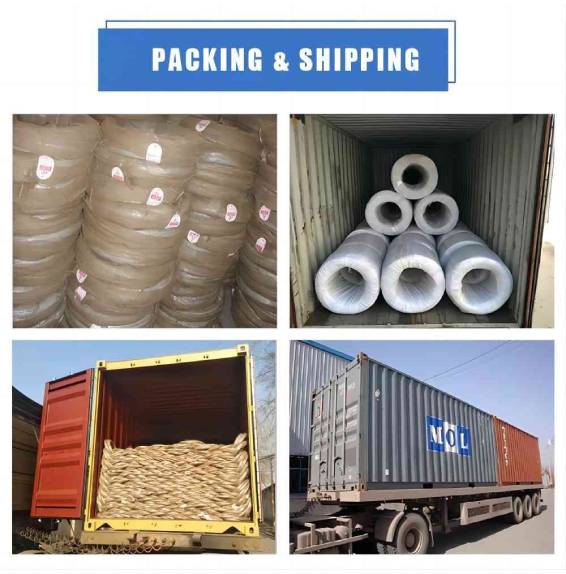Jan . 28, 2025 04:38
Back to list
Welded Wire Mesh
Welded wire mesh is a quintessential element in countless construction and industrial projects. Understanding its specifications can be the difference between a sturdy, long-lasting structure and one prone to early failure. In this guide, we dive deep into the specifics of welded wire mesh to provide you with the knowledge you need to make informed decisions, ensuring that your project benefits from both quality and durability.
Several standards have been established to guide the manufacturing of welded wire mesh, ensuring quality and performance credibility. It is crucial to look for mesh that complies with recognized standards such as ISO 10244 and ASTM A497/A497M. Compliance with these standards guarantees that the mesh meets specific requirements for tensile strength, weld shear strength, and dimensional accuracy, thus enhancing the trustworthiness and reliability of the mesh in practical applications. Welded wire mesh pricing is influenced by several factors, key among them being material choice, mesh size, and wire diameter. Choosing galvanized or stainless steel types, while providing superior longevity and resistance to environmental damage, will generally increase costs. Similarly, larger mesh sizes with thicker wires, due to the increased material content, will be more expensive. When selecting welded wire mesh for any project, consider not only the immediate specifications but also the long-term requirements. An initial investment in higher-grade materials, especially for outdoor applications exposed to elements or projects demanding heightened security, can mitigate future repair or replacement costs, making the investment cost-effective. Lastly, working with reputable suppliers can dramatically affect your project outcome. A trusted supplier will offer product warranties, provide details regarding their compliance with industrial standards, and give expert advice tailored to your specific needs. Prioritize suppliers who demonstrate integrity and are known for providing high-quality materials within the industry. In summary, welded wire mesh specifications are not merely technical details but crucial guidelines to achieving a successful project outcome. By focusing on the right materials, understanding mesh size and wire diameter, ensuring the application of rigorous standards, and investing in trusted products, you reinforce both the strength and longevity of your construction projects or industrial applications.


Several standards have been established to guide the manufacturing of welded wire mesh, ensuring quality and performance credibility. It is crucial to look for mesh that complies with recognized standards such as ISO 10244 and ASTM A497/A497M. Compliance with these standards guarantees that the mesh meets specific requirements for tensile strength, weld shear strength, and dimensional accuracy, thus enhancing the trustworthiness and reliability of the mesh in practical applications. Welded wire mesh pricing is influenced by several factors, key among them being material choice, mesh size, and wire diameter. Choosing galvanized or stainless steel types, while providing superior longevity and resistance to environmental damage, will generally increase costs. Similarly, larger mesh sizes with thicker wires, due to the increased material content, will be more expensive. When selecting welded wire mesh for any project, consider not only the immediate specifications but also the long-term requirements. An initial investment in higher-grade materials, especially for outdoor applications exposed to elements or projects demanding heightened security, can mitigate future repair or replacement costs, making the investment cost-effective. Lastly, working with reputable suppliers can dramatically affect your project outcome. A trusted supplier will offer product warranties, provide details regarding their compliance with industrial standards, and give expert advice tailored to your specific needs. Prioritize suppliers who demonstrate integrity and are known for providing high-quality materials within the industry. In summary, welded wire mesh specifications are not merely technical details but crucial guidelines to achieving a successful project outcome. By focusing on the right materials, understanding mesh size and wire diameter, ensuring the application of rigorous standards, and investing in trusted products, you reinforce both the strength and longevity of your construction projects or industrial applications.
Share
Latest news
-
Weather Resistance of Woven Wire and Chicken Wire Fencing MaterialsNewsJun.05,2025
-
Umbrella Nails Innovations in Roofing Fasteners for Wind ResistanceNewsJun.05,2025
-
Modern Barbed Wire Fence Designs for Perimeter ProtectionNewsJun.05,2025
-
How Iron Nail Wire Enhances Nail Strength and Installation EfficiencyNewsJun.05,2025
-
High-Security Razor Fence Solutions for Perimeter ProtectionNewsJun.05,2025
-
Durable Wire Netting Fence Solutions for Animal EnclosuresNewsJun.05,2025




